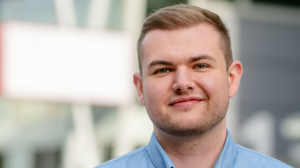Understanding Organizational Resilience - The Development of Organizational Resilience within the Gang Mara Salvatrucha (MS-13) in Central America and on the US East Coast
The Research Project

Why are certain gangs and criminal organizations seemingly “immortal”? How is their organizational resilience constituted and which factors and processes play central roles? My dissertation addresses these research questions through a case study of the transnational gang Mara Salvatrucha (MS-13). Today, spanning over North and Central America, the MS-13 is one of the largest street gangs in the world, poses a significant threat to public security, and pushes large-scale refugee streams, especially in Central America.
From the perspective of organizational sociology, I study the development of MS-13's resilience over the 40-year period of its existence and reconstruct phases of organizational resilience. I conduct research in Central America and the U.S. through document analysis and interviews with (former) gang members and experts.
I argue that MS-13's organizational resilience is not a static organizational quality understood as a set of specific capabilities, but rather an unceasing process that is continually fed by the experiences and adaptations of previous resilience processes. Accordingly, I understand the organizational environment as a central element of the constitution of MS-13's resilience. In this regard, my dissertation contributes not only to a better understanding of MS-13 in particular, but also to organizational sociological theory in general.
What I need the IRB for
The IRB enables me to conduct field research in the U.S. and Central America. My object of study, gangs, requires a high degree of personal flexibility. Precisely this flexibility makes the IRB so beneficial to me. I have the freedom to decide on the timing and location of my research and can respond to short-lived opportunities. The IRB not only facilitates my research but improves it.
IRB funded activities
Field research, United States (October 2021-April 2022)
From October 2021 to April 2022, I conducted extensive field research in the United States. Based at the City University of New York (CUNY), I interviewed a variety of different stakeholders and experts ranging from non-governmental organizations, over academics to law enforcement on the development of gangs and gang violence in the area. These insights are extremely valuable to my research as they helped me to understand the evolution and resilience of MS-13 in the United States, particularly at the East Coast. Further, I build networks with leading scholars of gang research, criminology and organizational sociology in the New York Metropolitan area and discussed some previous findings.
Field Research, Vienna, Austria (August 2022 – December 2022)
From August 2022 to December 2022, I spent three months working with the Civil Society Unit of the United Nations Office on Drugs and Crime (UNODC). This stay allowed me to learn more about the UNODC’s endeavors to fight organized crime, including current and future challenges, as well as the successful inclusion of civil society organizations. Furthermore, I participated in several high-level events, trainings and workshops. The stay helped me to connect my research better to current and future policy debates and interests, and particularly strengthened my networks to international organizations, NGOs and policy makers.
- Forschungsbezogene Kompetenzen: Workshops & Veranstaltungen
- Karrierevorbereitung: Workshops & Veranstaltungen
- Forschungsmanagement Skills: Workshops & Veranstaltungen
- Liste aller Workshops & Veranstaltungen
- Förderprogramme zur Internationalisierung
- Beratung & Ombudsperson
- Promovierenden-Datenbank
- Welcome Hour
- Newsletter


